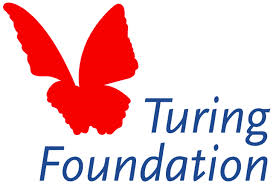
Project coordination
Pontifícia Universidade Católica do Paraná
Partners
McGill University Health Centre - RI-MUHC
Universidade Federal do Goiás - UFG
Fundação Hospitalar Alfredo da Matta, FUHAM
Universidade Federal de Uberlândia - UFU
Aim: The study aims to advance the understanding of the genetic component controlling host susceptibility to leprosy in a high-endemic setting, combining a hypothesis-free and a hypothesis-based approach.
Full project title: Genome-wide association study of leprosy per se and disease recurrence in a high endemic country
Project summary
Leprosy is a chronic infectious disease caused by Mycobacterium leprae, a microbe that invades cells of the skin and nerves. The development of leprosy is highly dependent on the genetic constitution of the human host, as initially demonstrated by observational studies involving families and twin pairs, for example. With the advance of technology, studies using DNA successfully identified various candidate genes involved in the control of leprosy itself and clinical features of the disease, such as the clinical type of leprosy and the occurrence of leprosy reaction. However, very few of these studies were designed to pinpoint the true causative genetic variants of the disease. Furthermore, the recurrence of the disease is a phenomenon that has been little explored and has a major impact on leprosy support services.
The research team has already identified a large number of genetic variants with a possible strong impact on leprosy; also, researchers described what can be a hypersusceptibility genetic profile in patients who had a recurrence of the disease. The next step is to validate these results in different populations. In this project, the researchers propose to search for new leprosy-associated variants, as well as to validate these variants using a large Brazilian population sample. As a result, it is expected to describe variants that might help to unravel the exact nature of host genetic control of susceptibility to leprosy. The impact of these variants will be analysed together to describe a profile that may lead patients to develop leprosy more than once. Finally, the research team hopes to contribute to the creation of a genetic panel that can be used to monitor patients and contacts, mainly living in endemic areas.
